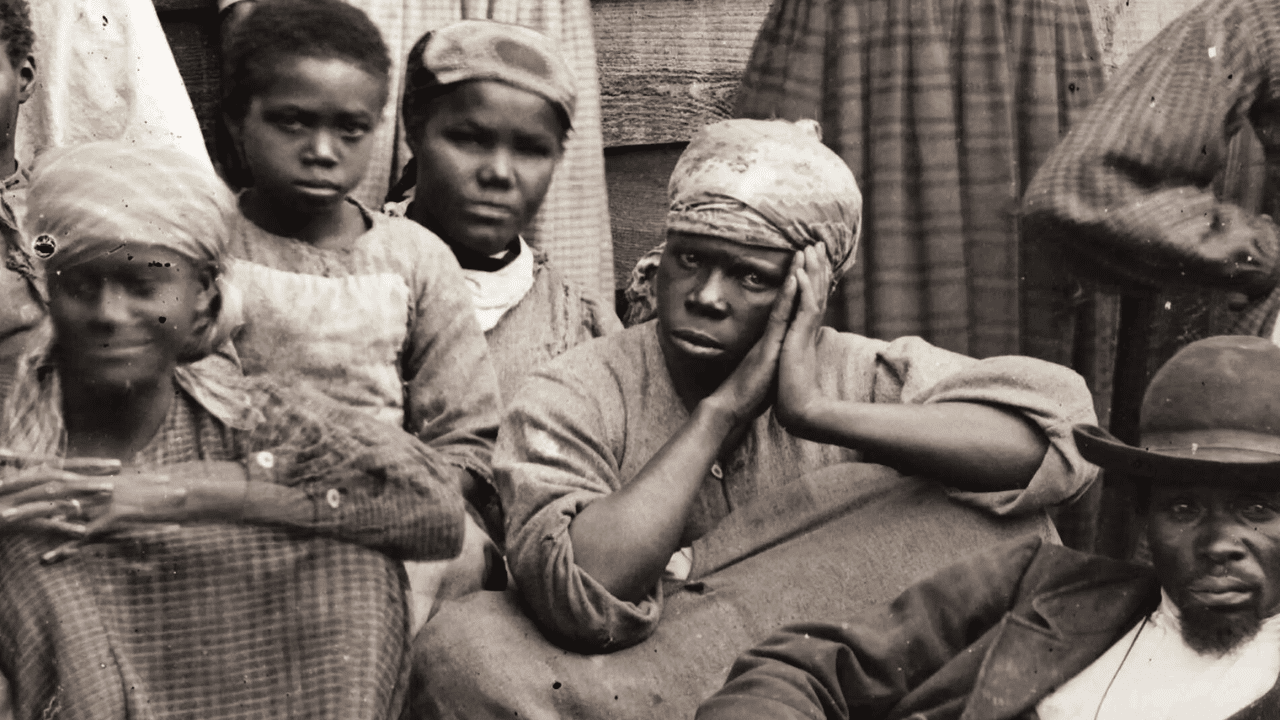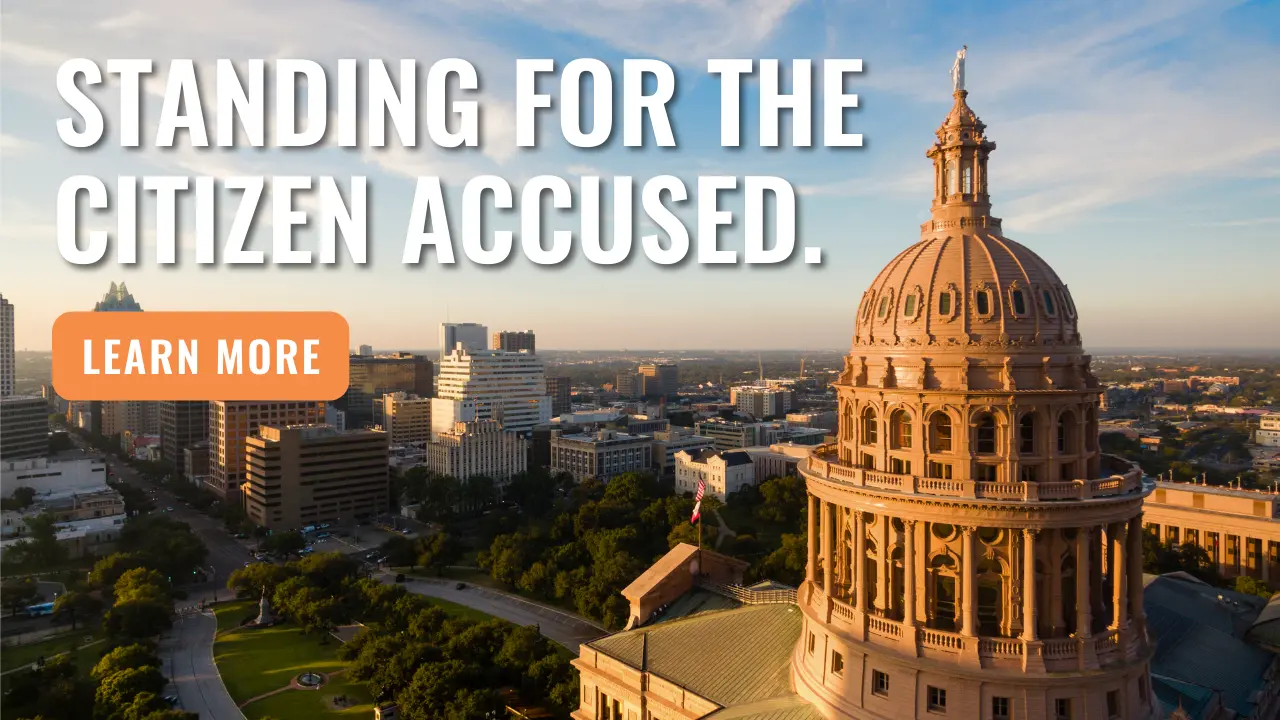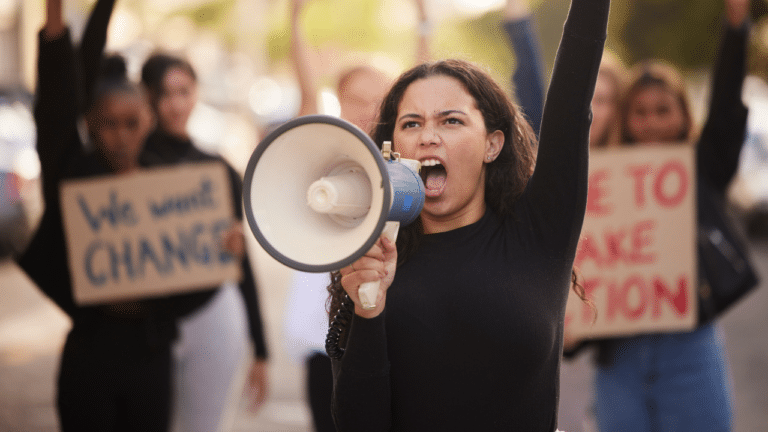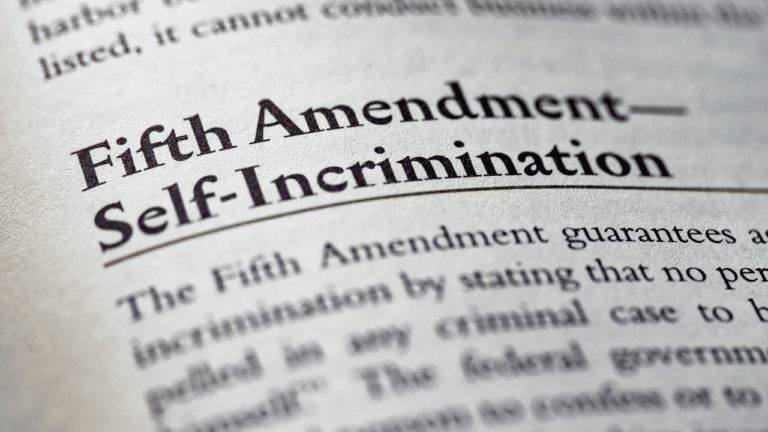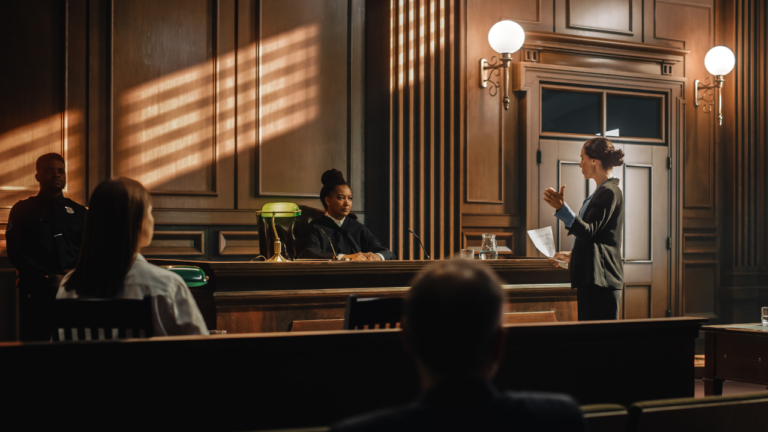The Thirteenth Amendment to the Constitution of the United States outlaws slavery, and gives Congress the power to create laws to enforce this prohibition, and punish those who violate such laws.
What is the Thirteenth Amendment in simple terms?
The Thirteenth Amendment abolished the institution of chattel slavery, and the badges and incidents of that institution. As early as 1883, the Court stated in the Civil Rights Cases that the Amendment empowered Congress to “pass all laws necessary and proper for abolishing all badges and incidents of slavery.” Although the Thirteenth Amendment itself is short and simplistic, what constitutes “badges and incidents of slavery” has been less clear through Supreme Court precedent over the years.
Does the Thirteenth Amendment prohibit imprisonment for crimes?
No. The Thirteenth Amendment provides an exception to permit confinement for those convicted of a crime. However, there have been some challenges to the detention of juvenile offenders. See Hancock, Donald C., The Thirteenth Amendment and the Juvenile Justice System, 83 J. Crim. L. & Criminology 614 (1992).
WHAT IS THE TEXT OF THE THIRTEENTH AMENDMENT TO THE UNITED STATES CONSTITUTION?
U.S. Const. Amend. XIII. SLAVERY ABOLISHED; ENFORCEMENT
Section 1. Neither slavery nor involuntary servitude, except as a punishment for crime whereof the party shall have been duly convicted, shall exist within the United States, or any place subject to their jurisdiction.
Section 2. Congress shall have power to enforce this article by appropriate legislation.
WHAT IS THE HISTORICAL ORIGIN OF THE THIRTEENTH AMENDMENT?
Although the Preamble declared the Constitution of the United States was written with the intent “to form a more perfect Union,” the Union has been divided since 1776 into states in which slavery was legal and illegal. The “Privileges and Immunities” in Article IV of the Constitution thus did not apply to everyone living in the United States prior to the enactment of the Thirteenth and Fourteenth Amendments.
By the time of the Civil War, congressional Republicans on Capitol Hill had generally accepted the abolitionists’ ideals that slavery and its concomitant disabilities needed to end immediately. Carter, William M., Race, Rights, and the Thirteenth Amendment: Defining the Badges and Incidents of Slavery, 40 U.C. Davis L. Rev. 1311 (2007). Even conservative Democrats in the House and Senate realized slavery was inevitably at its end, and the Thirteenth Amendment was designed to enforce abolishment. Added to the Constitution in December of 1865, long after the Union’s military victory, it fulfilled the promise of President Abraham Lincoln’s Emancipation Proclamation that emancipated slaves in Confederate states.
In its 1864 election platform, the Republican Party pledged to amend the Constitution to accomplish the “utter and complete extirpation” of slavery from “the soil of the Republic.” 2 A. Schlesinger, History of U.S. Political Parties 1860–1910, p. 1303 (1973). After a landslide victory, Republicans moved to make good on that promise. Students for Fair Admissions, Inc. v. President and Fellows of Harvard College, 600 U.S. 181 (2023) (Thomas, J., concurring). James Ashley, a member of the Reconstruction Congress, spearheaded the antislavery constitutionalism effort by enacting the Thirteenth Amendment.
During the debates over the Thirteenth Amendment, it was no longer politically acceptable for Northern conservatives to argue in favor of maintaining human enslavement. The debates focused on the effect of ending slavery rather than whether it should be done. The Amendment borrowed its wording from the Northwest Ordinance of 1787, which prohibited slavery in the Northwest Territory beyond the Ohio River. The Ordinance began: “There shall be neither slavery nor involuntary servitude in the said Territory, otherwise than in the punishment of crimes whereof the party shall have been duty convicted . . . .”
The Thirteenth Amendment Framers viewed the text broadly, arguing it allowed Congress to legislate not merely against slavery itself, but against all the badges and relics of a slave system. The Amendment also granted Congress the authority to enforce its terms, which is an authority not granted in any prior Amendment. Proponents believed the enforcement clause permitted legislative measures designed to give Congress, state legislatures, and law enforcement the ability to accomplish the Amendment’s broader goal of equality for the freedmen. Id.
It quickly became apparent, however, that more joint resolutions by Congress and state legislatures would be necessary to safeguard the Thirteenth Amendment’s goal. Soon after its adoption, the reconstructed Southern States under Andrew Johnson’s Reconstruction program began to enact “Black Codes,” which circumscribed the newly won freedoms of blacks. For example, the Black Code of Mississippi imposed all sorts of disabilities on blacks, including limiting their freedom of movement, and barring them from following certain occupations, owning firearms, serving on juries, testifying in cases involving whites, or voting. E. Foner, The Second Founding 48 (2019).
In response to these involuntary black labor laws that forced blacks to sign labor contracts under the threat of prosecution for vague crimes, Congress passed the Civil Rights Act of 1866 on April 9, 1866. This was the first civil rights bill in the history of the country, and made significant contributions to the difficult transition of African Americans from slavery to freedom in the post-Civil War years. In 1866, Senator Lyman Trumbull, who was chairman of the Senate Judiciary Committee that fashioned the text of the Thirteenth Amendment, explained the right to travel within the context of Section 2 enforcement authority: “It is idle to say that a man is free who cannot come and go at pleasure . . . [and] who cannot enforce his rights.”
What is the Reconstruction Era?
The Reconstruction Era is generally considered the post-Civil War period until the Compromise of 1877. The Emancipation Proclamation on January 1, 1863 marks the beginning of the Reconstruction of the South, and Reconstruction Era Presidents include Abraham Lincoln, Andrew Johnson, and Ulysses S. Grant.
The Thirteenth Amendment is known as one of the “Reconstruction Amendments,” or “Civil War Amendments,” and was passed by the Senate on April 8, 1864, the House of Representatives on January 31, 1865, and ratified by 27 of the 36 existing states on December 6, 1865. It was proclaimed on December 18, 1865. The other Reconstruction Amendments adopted during the Reconstruction of the American South after the Civil War are the Fourteenth and Fifteenth Amendments, adopted between 1865 and 1870.
During Reconstruction, slavery was abolished throughout the entire nation, Confederate secession ended, and the 13th, 14th, and 15th Amendments were ratified. The Reconstruction Era generated the familiar terms “carpetbaggers” to describe Northerners, and “scalawags” for white Southerners who supported Reconstruction efforts.
In addition to the three Reconstruction Amendments, many important laws were passed to provide freed former slaves with equal rights under the Constitution. Blacks were voting, taking political office, establishing integrated school systems, and forming integrated coalitions. Organizations such as the Ku Klux Klan, the White League, and Red Shirts terrorized black Americans to drive them away from the polls, neighborhoods, schools, restaurants, and everywhere else. However, President Grant used federal power to shut down the KKK in the early 1870s.
Racially-motivated domestic terrorism was not the only lingering effect of the Civil War. The country was torn by economic devastation. In the South, farms and their stocks were in shambles, the railroad system and the rest of the transportation infrastructure was in ruins. Restoring the infrastructure of the South became a high priority, but former slave owners in the South had little capital to pay the costs of restoration.
WHAT DOES THE 13TH AMENDMENT DO?
The Thirteenth Amendment abolished slavery, and gave Congress the power to enact law necessary and proper for the enforcement of the Amendment’s prohibition.
Did the Thirteenth Amendment abolish slavery in all states?
Yes. The 13th Amendment abolished slavery and involuntary servitude in the entire country, and is important not only because it marked the near-end of the Civil War, but because of its interpretation beyond chattel slavery.
There are two interpretations of the Thirteenth Amendment. The first is that the Amendment prohibits only chattel slavery, involuntary labor, or other conditions amounting to actual compelled service. For example, courts and scholars have determined the Thirteenth Amendment prohibits coercive labor practices, physical confinement in involuntary servitude, child abuse, forced prostitution, or other forms of compelled service or physical domination.
This interpretation in the exercise of Thirteenth Amendment power is not guided by race. The 13th Amendment is thus an absolute declaration that neither slavery nor involuntary servitude shall exist in the United States. This means that any person of any race can be enslaved, abused, exploited, or physically dominated in a manner equivalent to enslavement. Carter, William M., Race, Rights, and the Thirteenth Amendment: Defining the Badges and Incidents of Slavery, 40 U.C. Davis L. Rev. 1311 (2007).
What are Badges and Incidents of Slavery?
The contrasting “badges and incidents of slavery” interpretation requires examining whether a modern condition or form of discrimination is a lingering effect of the African slavery system.
In The Civil Rights Cases, the Supreme Court held the Thirteenth Amendment “clothes Congress with power to pass all laws necessary and proper for abolishing all badges and incidents of slavery” in the United States.
In Jones v. Alfred H. Mayer Co., the defendants refused to sell property to an interracial couple because the husband was black. The couple alleged the defendants violated 42 U.S.C. § 1982, the law against racial discrimination in the sale or rental of property. The Supreme Court determined § 1982 reached purely private discrimination, and the defendants’ refusal to sell a home to an African American buyer was a badge or incident of slavery that reinforced segregation. The Court’s focus was on the dehumanizing vestiges and stigmas arising out of slavery that African Americans continued to suffer.
In Palmer v. Thompson, a city chose to close all public swimming pools rather than integrate them. Plaintiffs claimed the city’s swimming pool closures violated the Thirteenth Amendment because it was a badge or incident of slavery. The Supreme Court disagreed, holding the plaintiffs’ 13th-amendment claim was a stretch of the “short simple words.”
It thus remains an open question as to how courts presented with Thirteenth Amendment claims will determine what constitutes a badge or incident of slavery. But the Amendment’s Enforcement Clause empowers Congress to adopt legislation aimed at preventing or remedying conditions that it rationally determines are badges or incidents of slavery. The federal government can thus trump whatever “states’ rights” might otherwise exist in civil matters. Carter, William M., Race, Rights, and the Thirteenth Amendment: Defining the Badges and Incidents of Slavery, 40 U.C. Davis L. Rev. 1311 (2007).
Additionally, the badges and incidents of slavery against which Congress can legislate include those “inseparable incidents” of slavery imposed upon African Americans during slavery. See Hodges v. United States, 203 U.S. 1 (1906). Those include any abridgment or denial of freedom of movement, the ability to own or dispose of property, the right to make and enforce contracts, and of other civil rights afforded to white citizens. See Jones v. Alfred H. Mayer Co., 392 U.S. 409 (1968).
In contrast to the Equal Protection Clause, the Supreme Court has clearly held that the Thirteenth Amendment applies to private conduct. The Court has left open the possibility that the Thirteenth Amendment applies not only to purposeful discrimination, but also to systemic or “disparate impact” discrimination. See General Bldg. Contractors Ass’n v. Pennsylvania, 458 U.S. 375 (1982).
What is peonage?
Peonage is a form of involuntary servitude within the meaning of the Thirteenth Amendment. The Supreme Court has held that the “essence [of peonage] is compulsory service in payment of debt.” Bailey v. Alabama, 219 U.S. 219 (1911). A “peon” is one who is compelled to work for his creditor until his debt is paid.
Under the peonage system, a laborer is absolutely bound to his employer. He is compelled to stay and labor until he has paid his indebtedness. If he leaves or attempts to leave, he can be restrained or forced to return. The employer can sell his unexpired term to anyone who will pay the amount due, and assume the obligations of the master. And however it is created or functions, it violates the Thirteenth Amendment.
In Bailey v. Alabama, Bailey, a black farm laborer, contracted with a company for a salary of $12 per month. He received an advance of $15 that was due back in monthly installments, but he quit work after six weeks and before paying off the advance. He was sentenced to 136 days of hard labor for violating an Alabama false pretenses statute. The U.S. Supreme Court reversed the conviction, finding the statute violated the Thirteenth Amendment’s prohibition against involuntary servitude. According to the Court, “the state could not avail itself of the sanction of the criminal law to supply the compulsion (to enforce labor) any more that it could use or authorize the use of physical force.”
Although the Supreme Court has never addressed the issue of alimony directly, scholars and commentators have considered whether the ordering of a divorced spouse to pay for the future living expenses of the other by way of alimony constitutes peonage or involuntary servitude. See Chemerinsky, Erwin, Constitutional Issues Posed in the Bankruptcy Abuse Prevention and Consumer Protection Act of 2005, 79 Am. Bankr. L.J. 571 (2005).
Is prison labor against the Thirteenth Amendment?
Prison labor that constitutes involuntary servitude violates the Thirteenth Amendment, but not all prison labor is unconstitutional. Some prison labor programs are rehabilitative rather than punitive, and prisoners are paid or given other consideration for their work. Despite the punishment clause of the 13th Amendment, the goal of a maintaining a system of completely free and voluntary labor throughout the United States stands, even in prisons.
WHAT DID THE THIRTEENTH AMENDMENT DO FOR THE CIVIL WAR?
The Thirteenth Amendment was adopted in December of 1865, which solidified the Union’s victory in the Civil War. The war had been nearing its end for years, beginning with the Emancipation Proclamation on June 1, 1863.
In the wake of the Civil War, the country focused its attention on restoring the Union and establishing the legal status of newly freed slaves. The Thirteenth and Fourteenth Amendments abolished slavery, and proclaimed that all persons born in the United States are citizens entitled to the privileges and immunities of citizenship, and the equal protection of the laws. Students for Fair Admissions, Inc. v. President and Fellows of Harvard College, 600 U.S. 181 (2023) (Thomas, J., concurring). Because of that second founding, the Supreme Court has reiterated: “Our Constitution is color-blind, and neither knows nor tolerates classes among citizens.” Plessy v. Ferguson, 163 U.S. 537, 559 (1896) (Harlan, J., dissenting).
What is the Emancipation Proclamation?
The Emancipation Proclamation, also known as Proclamation 95, is an executive order issued by President Abraham Lincoln on January 1, 1863. With the Emancipation Proclamation, Lincoln declared over three million Confederate slaves permanently freed as soon as they escaped the control of their slaveholders by fleeing to Union lines, or through the advance of federal troops. Abolitionists aided enslaved people escape to Union lines through the Underground Railroad.
The Proclamation did not apply to slaves in border states that remained loyal to the Union. But it redefined the American Civil War, turning it into a war focused on ending slavery. The Proclamation further set a clear course for how the nation would rebuild after such immense conflict.
What is Juneteenth?
On June 19, 1865, General Gordon Granger and thousands of Union troops marched into Galveston, Texas, to declare the Civil War was over, and all slaves were free. June 19 is a national holiday, known as “Juneteenth,” to commemorate General Granger’s reading of the Emancipation Proclamation to the formerly enslaved African Americans in Texas.
How is Fourteenth Amendment due process different from the Thirteenth Amendment?
The Thirteenth Amendment differs from and is broader than the Fourteenth Amendment’s Equal Protection Clause in two important respects. First, the Thirteenth Amendment does not have the limitation of the Equal Protection Clause—the Thirteenth Amendment applies to purely private conduct imposing either slavery or a badge or incident of slavery, which the Fourteenth Amendment only applies to state action. Carter, William M., Race, Rights, and the Thirteenth Amendment: Defining the Badges and Incidents of Slavery, 40 U.C. Davis L. Rev. 1311 (2007).
THIRTEENTH AMENDMENT TO THE UNITED STATES CONSTITUTION
The Thirteenth Amendment, the announcement of the demise of slavery, was described as a “grand yet simple declaration of the personal freedom of all the human race within the jurisdiction of this government.” Slaughter-House Cases, 83 U.S. 36 (1872). However, the Thirteenth Amendment doctrine has proven complex.
THIRTEENTH AMENDMENT COURT CASES
The United States Supreme Court has interpreted and applied the Thirteenth Amendment since its adoption in 1865.
- In United States v. Kozminski, two mentally retarded men worked 17 hours a day for no pay. Their “bosses”—the defendants—did not provide a proper diet, humane living conditions, clothing, or medical care, and forced the victims to live in isolation. The defendants were convicted under a federal statute prohibiting labor under the threat or use of physical or legal coercion. The Supreme Court recognized the victims experienced extreme psychological coercion, but that is not in the applicable statute. The convictions were reversed for retrial with a jury charge limited to physical and legal coercion.


